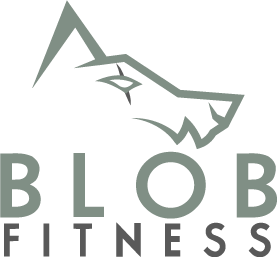
Intaking protein after a workout, especially when it comes to a certain amount is often either misunderstood or neglected.
Some people throw down over 100g of protein and some people don't have any protein at all due to their schedules or they just forget.
New research (2023) has changed the stance on how much protein to intake after a workout that we are going to cover.
Protein itself plays a vital role in our diets, especially when focusing on hypertrophy or retaining muscle mass. (Although, it should be an important factor in every diet regardless of goal)
So this article will go into understanding protein, its importance, how much we need daily, how much to take after workouts, and the optimal times to take protein.
What is Protein?
Proteins are organic molecules made up of amino acids. They're essential for building and repairing tissues, making enzymes, hormones, and other body chemicals.
The human body can synthesize some amino acids, but others, known as essential amino acids, must be obtained through diet.
A complete protein source provides all the essential amino acids. Animal-based foods like meat, dairy, and eggs, and a few plant-based sources like quinoa and soy, are complete proteins.
Protein is a crucial building block of bones, muscles, cartilage, skin, and blood.
The Importance of Protein
Protein is vital for muscle repair, growth, and maintaining a healthy metabolism.
It plays a critical role in building and repairing tissues, especially after exercise.
Adequate protein intake supports immune function, aids in weight management by enhancing satiety, and is essential for overall health and well-being.
What Happens if I Don't Get Enough Protein
Not consuming enough protein can lead to several health issues like muscle wasting, weakened immune system, increased risk of bone fractures, and more.
Protein is vital for a healthy lifestyle especially when trying to build muscle mass.
How Much Protein Per Day
Before we get into how much protein to intake after a workout, we need to know how much to intake throughout the day.
The recommended daily intake of protein varies depending on age, sex, physical activity level, and health goals.
Generally, a sedentary adult should consume 0.8 grams of protein per kilogram of body weight.
For those engaged in regular exercise, the need increases to around 1.2 to 2.0 grams per kilogram, depending on the intensity of the activity.
If you are curious about how much protein you need to intake per day, check out our macro calculator.
How Much Protein to Intake After a Workout
Post-workout is a crucial time for protein intake.
Considering how crucial it is, how much protein to intake after a workout?
There has always been nuance about how much protein to intake especially since there is an idea that your body only "uses" a certain amount of protein at a time.
This isn't true, to begin with, but other people suggested that taking over a certain amount of protein doesn't muscle protein synthesis plateaus after a certain amount of protein (depending on the person) which is more plausible.
In the study specifically, this was with ingesting 100g of protein. The original belief was to max out around 40g-60g for a meal.
This study shows that you can intake any high amount of protein and still achieve great and even better results.
I believe getting 100g in one sitting is a bit difficult, but if you can get at least 40-50g after a workout would be ideal.
However, you DO NOT need to worry about getting too much, which is great to know.
Optimal Times for Protein
So we know that taking protein after a workout doesn't truly have an upper limit as of yet. We can at least conclude that you can intake more than half your protein intake in one sitting after a workout and it'll have a benefit.
We also know consuming less than 25g of protein after a workout isn't truly ideal either.
How about the rest of the day though?
To keep muscle protein synthesis elevated throughout the whole day, ideally, I would suggest consuming around 25-30g of protein per meal at a minimum with most of your protein intake coming in after a workout.
However, if you are someone who does fasting or doesn't have time to spread out their protein, it's still ok to get all your protein all at once.
The most important thing is that you get enough protein throughout the day.
Timing of it (outside of after workout) is a smaller detail and there are ways to optimize it but you don't miss out on exceptional gains because you missed out on a 2-hour window of intaking protein.
Final Thoughts
The amount of protein to intake after a workout is important.
Intaking over 40-60g of protein after a workout is ideal. Having even more than that shows that it doesn't hurt you either and can be beneficial.
For the rest of your day, spreading protein is still ideal, but if it's not, it's not going to cost you significant gains in the end.
Make sure you are:
- Getting enough protein to achieve hypertrophy and/or retain muscle mass.
- The amount of protein to intake after a workout should be at or over 40-60g
If you have those 2 points in order, you will be fine.
Get a Free Guide!
Similar Posts
This article on dieting myths debunked will help you understand the main myths to avoid for clarity on your dieting journey.
This article discusses the importance and how to create a nutrient dense diet, rich in vitamins, minerals, and antioxidants, boosts health and vitality.
Explore the crucial interplay of Vitamin D3, Magnesium, and K2 for optimal health, and learn how these nutrients enhance bone, heart, and immune health.



